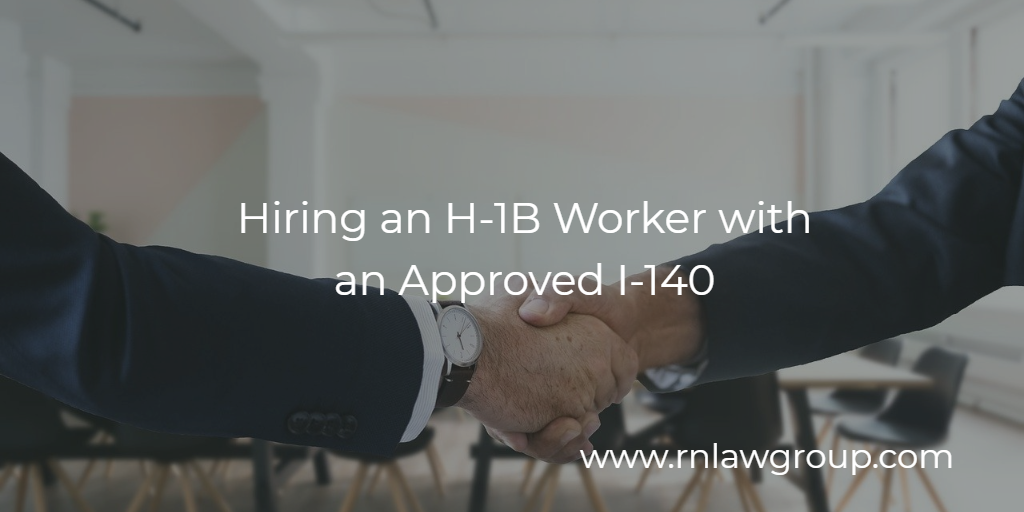
Hiring an H-1B Worker with an Approved I-140
The typical desire of an H-1B holder is to one day obtain a green card. To do so they will usually need an employer who is willing to sponsor them. This means the employer will have to go through the labor certification process, file an I-140, and eventually be willing to sponsor an I-485 petition for the employee to adjust status. However, the process can be a long one, especially when the I-140 is approved as the employee must now wait for their priority date to become current. During this time period it is not uncommon for an employee to seek out a better job offer from another employer. But, what is the impact of an approved I-140 on the new sponsoring employer?
Hiring an H-1B holder with an approved I-140 does not create any additional hurtles during the onboarding process. For example, the I-9 process is the same as it would be for any other H-1B employee. A benefit to both the employer and employee is that the employee will be able to continue extending their H-1B beyond six years as a result of the American Competitiveness in the Twenty first Century Act (AC21). This means that an employer does not necessarily need to rush to initiate the PERM process after hiring the employee since a six-year H-1B issue is moot. This is true even if the prior employer has withdrawn their I-140, as long as the I-140 had been approved for 180 days and was not revoked due to fraud, willful misrepresentation or material error by USCIS, or the underlying labor certification was invalidated or revoked.
Another benefit of an approved I-140 is the ability to utilize the I-140s priority date. While an employer will have to do their own PERM and I-140 to eventual sponsor an adjustment of status, the ability to utilize the prior priority date may alleviate an employee’s desire to return to their former employer in the event said priority date becomes current. Another option that the employer can explore in order to shorten the green card process is to downgrade an EB2 to EB3 in the event the priority date in EB3 has become current.
All in all, an employer is likely to benefit from hiring an H1B holder with an approved I-140. It allows an employer to side-step the six year issue and, if the employee is in agreement, staves off having to begin the process of filing their own I-140 immediately after hiring the employee. As priority dates begin to accelerate for certain foreign nationals green card sponsorship will be an even greater tool for recruitment. Smart companies will take advantage of this to obtain more foreign national talent within IT and other industries.
If you have any additional questions regarding the hiring of an H-1B holder with an approved I-140 or any other immigration issues please sign up for a consultation with one of Reddy Neumann Brown’s experienced attorneys.
By: Staff Attorney
